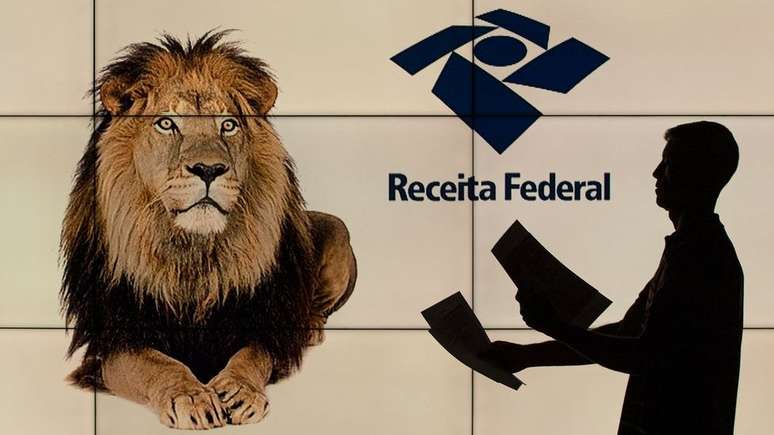Government studies new taxes on the wealthiest, but proposals face resistance in Congress.
Millionaire taxpayers in Brazil pay lower rates of income tax than middle- and upper-income professionals, shows an unprecedented survey conducted by Sindifisco Nacional, a union representing tax auditors at the Federal Revenue Service, according to data from the single income tax 2022 (Calendar year 2021).
According to this data, taxpayers who reported in 2021 total earnings exceeding 160 minimum wages (R $2.1 million in the year, or $176 thousand per month) paid, on average, one income tax effective (IR) less than 5.5%.
This is a lower rate, for example, than what elementary school teachers (8.1%), nurses (8.8%), bank employees (8.6%) or social workers (8.8%) paid – professionals who, on average, declared total income (sum of salaries and other income) below R $ 94,000 that year (less than $ 8,000 per month).
The actual rate of millionaires was also lower than that of military police officers (8.9%), whose total median income in 2021 was $105 thousand (R$8,750 per month). Or that of doctors (9.4%), who declared an average total income of R $ 415 thousand (R $ 34.6 thousand per month).
The effective rate is the percentage of total income that was actually consumed by the IR. According to Sindifisco, the main reason the wealthiest have a lower tax rate is that a relevant part of their income comes from receiving profits and dividends from their companies – income that has been exempt from tax in Brazil since 1996.
The middle class, on the other hand, has a larger share of its earnings coming from wages, which, in general, are taxed at source, with progressive rates reaching $27.5% for monthly earnings over $4,664.69.
These people also have some of their income tax-free, but it’s generally a smaller share of income than millionaires.
The Sindifisco survey also shows that the effective rate paid by top-income taxpayers decreased for two years in a row, between 2019 and 2021: as there was growth in the payment of profits and dividends during that period, the top of the pyramid became richer at the same time who paid proportionally less income tax.
Federal revenue data shows that Brazilian taxpayers said they received a total of $555.68 billion in profits and dividends in 2021, an increase of nearly 45% on the 2020 value (R $384.27 billion ) and 46.5% compared to 2019 (BRL 379.26 billion).
For the president of the Sindifisco, the tax auditor ISAC Falcão, this increase reflects the expectation that dividends will be taxed again in the country.
The yield of this taxation can be included by the government of Luiz Inácio Lula da Silva in a proposal to reform the income tax that the Ministry of Finance intends to send to Congress at the end of this year.
The issue, however, faces resistance in parliament. A similar proposal sent by Jair Bolsonaro’s government in 2021 has not come forward.
“Companies are withholding less dividends now so they don’t take the risk of distributing them when they are already taxed. This is one of the reasons why I say the problem is on the agenda,” Falcão believes.
IR is increased for low-income groups
On the other hand, the survey shows that taxpayers on low or intermediate incomes (ranges ranging from one to 15 monthly minimum wages) started paying a higher average effective income rate between 2019 and 2021.
According to the Sindifisco, the fact that the income tax table has not been updated by inflation for many years explains the increase in the effective tax rate for low-income groups.
Because wages usually have an annual hike to compensate for inflation, workers end up moving up the range of contributions and start paying more income taxes, even though their purchasing power hasn’t necessarily increased.
For example, taxpayers who declared a monthly income of between 5 and 7 minimum wages in 2021 (R $ 5,500 to R $ 7,700 in that year’s values) paid an average effective rate of 6%, or more than millionaires.
Two years earlier, the average rate for this income group was 4.5%.
In this context, Falcão defends that the taxation of profits and dividends must be used to compensate for a reduction in the income tax that is levied on lower income brackets.
The expectation is that the reform that Haddad will send to Congress will also have an increase in the range of income exempt from income tax.
During the campaign, Lula promised to extend this exemption up to $5,000 a month. However, Haddad himself has already said that it is a difficult mission to carry out, as it could cost tens of billions of reais in annual government revenue losses.
Today, Brazilian taxpayers pay no income tax on monthly earnings up to $2,112. Lula’s government has created a simplified monthly deduction in the amount of R $ 528 which, in practice, increases the exemption to R $ 2,640 for people with lower incomes.
The mechanism does not benefit higher-earning taxpayers because it cannot be stacked with other deductions that are already used by this group, such as social security contributions, alimony and dependents.
The income of the upper middle class is the most taxed
The taxpayers who pay the most IR are those with a monthly income between 10 and 40 minimum wages (R $ 11,000 to R $ 44,000 in 2021 values), whose average effective rate is above 10%.
In this group, there are high-level professions, such as the top of the public career. In these cases, the percentage of income actually consumed by the IR is more than double that paid by millionaires, such as judges (13%), central bank employees (14.5%) or tax auditors (15.6%). ).
These are categories that, although they do not have millionaire incomes, receive a remuneration well above that of most Brazilians. The judges, for example, declared a total average income of BRL 729.6 thousand in 2021 (BRL 60.8 thousand per month).
For the president of the Sindifisco, the tax auditor ISAC Falcão, the effective rates charged on these high-wage categories are fair. The problem, he believes, is that segments with even higher incomes pay lower rates.
On the other hand, the data show, there are professions with high incomes compared to the majority of the Brazilian population who pay low effective taxes, criticizes Sérgio Gobetti, an IPEA economist specializing in taxation and public finance.
This is the case for lawyers (5.2%), whose average total reported income in 2021 was BRL 223 thousand (BRL 18.6 thousand per month).
Or decorators (5.1%), who reported an average of BRL 215 thousand in total income that year (BRL 17.9 thousand per month).
In general, they are self-employed professionals, owners of their own companies, who pay lower rates on the profits they make because these companies fall under special tax regimes, such as Simples and the supposed profit system.
Taxpayers who declared themselves to the tax authorities as directors, presidents or directors of companies, for example, had an effective tax rate of only 4.14% in 2021, when they recorded an average total income of R $ 267.8 thousand ( R $ 22.3 thousand per year). Month).

Should Brazil return to tax dividends?
Brazil is one of the few countries in the world that does not tax profits and dividends. This does not mean that the money that goes into the shareholder’s pocket has never been taxed.
As a rule, two taxes are levied on corporate profits: the corporate income tax (IRPJ) and the social contribution on net income (CSLL), the rates of which add up to 34%.
Opponents of dividend taxation say the 34% rate is high by international comparison.
According to Sergio Gobetti, the taxation of company profits in other countries is really lower, hovering, on average, in the range of 20% to 25%.
In practice, however, Brazilian companies do not pay the full rate, as there are benefits and exemptions that allow you to reduce the amount you charge from your revenue.
“Several studies show that, on average, open-ended companies (with shares on the stock exchange) pay 24% of taxes on their profits and not 34%”, he points out.
Additionally, businesses with annual revenues up to $4.8 million can join Simples, which has progressive tax rates ranging from 4% to 33% and include 8 taxes, including IRPJ.
For Sérgio Gobetti, the declaration of the taxation of dividends should be accompanied by a comprehensive reform of corporate taxation, which eliminates the exceptions that allow companies to pay little on their earnings.
With this, he says, it would be possible to reduce the IRPJ/CSLL tax from 34% to 25% and create another rate to be paid on profits and dividends, which could be 20% or 25%.
“And there may be a range of exemptions. For example, dividends up to $30,000 in the year would not be taxed and amounts above that would pay off,” she exemplifies.
On the other hand, another argument of the defenders of ending the taxation of profits and dividends in Brazil is that this tax had low tax efficiency and generated a lot of legal disputes, that is, the treasury had difficulty charging this tax correctly.
This argument was defended in an article by three former federal revenue secretaries: Everardo Maciel (FHC government), Jorge Rachid (Lula, Dilma Rousseff and Michel Temer Governments) and Marcos Cintra (Jair Bolsonaro government).
“Taking the year 1995 as a basis, the IRPJ collection, even if not only due to this option, has grown, in real terms, in all the following years – often with percentages higher than 100%, while the participation of this tax on GDP has increased in practically every year, reaching an impressive growth of 95%”, they discussed in the article published last year, in the newspaper Folha de S.Paulo.
Gobetti, in turn, argues that today’s reality is different from that of 1995 due to the growing internationalization of the economy, which offers companies more freedom to choose where to invest in the world.
In his assessment, this is another factor in favor of a reform that reduces direct corporate taxation and taxes distributed to shareholders.
“Corporate profits taxed directly is no doubt simpler, but it’s incompatible with today’s world, where all countries have significantly reduced their taxes on companies. So (the current Brazilian model) is not just a problem to because of the lack of progressivity”, “,” He stressed.
Source: Terra
Rose James is a Gossipify movie and series reviewer known for her in-depth analysis and unique perspective on the latest releases. With a background in film studies, she provides engaging and informative reviews, and keeps readers up to date with industry trends and emerging talents.







